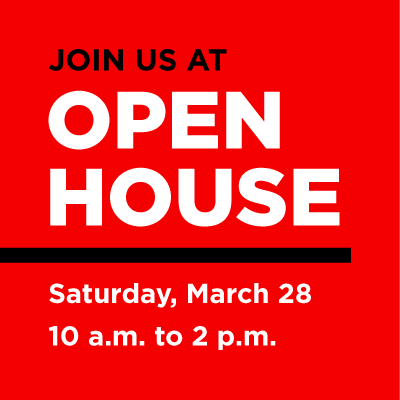Auto Body and Collision Damage Repairer [Apprenticeship]

These days, repairing motor vehicles takes more than getting your hands dirty. Today’s vehicles are complex, computerized machines that take skill and specialized training to repair. If you’re interested in a rewarding and in-demand career that requires cutting-edge training to develop highly valued skills, this program is for you.
You’ll restore, repair and replace auto body parts and interior finishing. You’ll also assess damage and estimate the cost of repairs. Plus, you’ll operate welding equipment, while learning the skills necessary to prepare and refinish today's high-end top coats.
Vehicle technology is constantly changing so top-notch skills and a commitment to continued learning are required for career success. If you’re willing to evolve alongside new vehicle repair technology, then the opportunities for a rewarding and satisfying career are endless.
The program also requires an apprenticeship component where you'll solve real vehicle problems in a real working garage, auto body shop or dealership.
If you're ready to work and want to combine training with earning power, consider an apprenticeship where you mix workplace-based training under the direction of experienced workers with shorter lengths of classroom or online training.
This is an apprenticeship program and cannot be applied to through ontariocolleges.ca.
To participate, you must first secure a sponsor/employer in your chosen trade. Once employed, you will complete a registered training agreement through Skilled Trades Ontario. Through the registered training agreement, you can select your schooling preference to complete the classroom training portion of your apprenticeship.
For more information on apprenticeship registration and requirements, please visit:
If you're ready to work and want to combine training with earning power, Fanshawe’s Auto Body and Collision Damage Repairer program will ensure a bright future in trades. Repairing motor vehicles takes more than getting your hands dirty. Today's vehicles are complex, computerized machines that take skill and specialized training to repair. If you're interested in a rewarding and in-demand career that requires cutting-edge training to develop highly valued skills, this program is for you.
Did you know Fanshawe consistently ranks high in graduation employment rates among large colleges in Ontario?
Here are some examples of career opportunities for graduates of Fanshawe’s Auto Body and Collision Damage Repairer program
Collision Repair Appraiser
Examine the damages to a vehicle, prepare estimates, coordinate work process and negotiate a fair price.
Autobody Technician
Perform many types of auto body repair to make a damaged car look as good as new.
Automotive Body Painter
Prepare and mask repaired panels, refinish to paint manufacturer and colour specifications and polish to complete the job.

Join Us for Open House
Find out if Fanshawe is the right fit for you at Open House. Explore Fanshawe's campuses, meet faculty and current students, and ask your questions about starting college.
Andrew Wonnacott
| Level 1 - Basic | ||||
| Take all of the following Mandatory Courses: | ||||
| ATBR-1001 | Applied Work Practices | 3 | ||
| This course when completed will enable students to identify work related hazards and to work in a manner where he/she is not a danger to themselves or others in the work environment. Students will learn all aspects of WHMIS training and will recall the information at annual intervals in the workplace. Students will study acts and laws pertaining to the trade in auto collision body repair. Students will utilize classroom knowledge to work safely with proper hand tools and various shop equipment. Students will also be able to identify types of fastening, sealing, and hardware used within the auto body collision repair trade. | ||||
| ATBR-1002 | Welding | 2 | ||
| This course when completed will enable students to properly use various forms of welding and cutting equipment in a safe a proficient manner. This includes performing oxy-acetylene fusion welding and cutting, the fundamentals of gas metal arc welding, and the capability of using a plasma arc cutter. Students will also be able to self evaluate their own work and make adjustments to improve their own welding personal techniques. | ||||
| ATBR-1025 | Body Frame Structure | 4.5 | ||
| This course when completed will enable the students to identify the various vehicle design concepts and manufacturing processes. Aspects of structural and non-structural panel construction will be discussed along with safety features related to bumper system function and design. Students will learn repair techniques such as metal finishing as well as the use of appropriate filler materials utilized in the repair of non-structural panels. | ||||
| ATBR-1004 | Refinishing | 3 | ||
| This course when completed will enable the students to identify the various vehicle design concepts and manufacturing processes. Aspects of structural and non-structural panel construction will be discussed along with safety features related to bumper system function and design. Students will learn repair techniques such as metal finishing as well as the use of appropriate filler materials utilized in the repair of non-structural panels. | ||||
| ATBR-1024 | Applied Mechanical | 2.5 | ||
| This course when completed will enable students to understand the basic fundamentals of PCs and how to use them, electrical systems in vehicles including batteries, and how air conditioning systems function. Students will understand the importance of refrigerant recovery. Students will also learn electrical circuit repair, circuit protection, and gain knowledge of tires and rims. Students will relate this knowledge and apply this while in the labs working in groups. | ||||